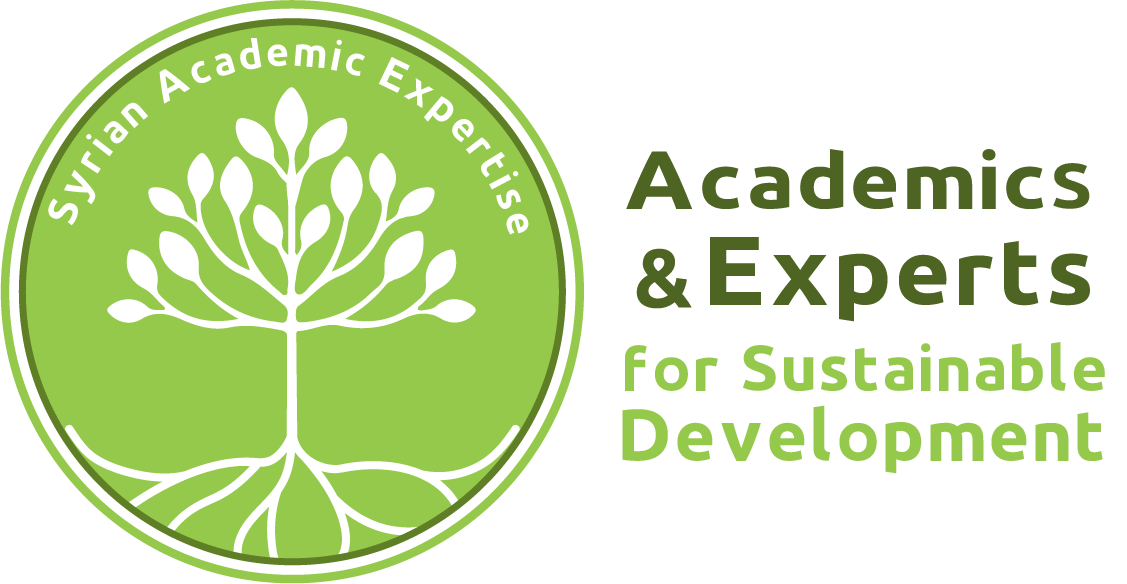Research team:
Shaher Abdullateefa, Iman Sarminib, Abdulmuheymin Dersevic, Tom Parkinsond
a University of Reading, School of Agriculture, Policy and Development, United Kingdom.
b Gaziantep University, Faculty of Education, Gaziantep, Turkey
c Zahra University, Faculty of Education, Gaziantep, Turkey
d University of Kent, Centre for the Study of Higher Education, Canterbury, United Kingdom
Corresponding author: shaher.abdullateef@gmail.com
Introduction
Prior to 2011, public universities and private institutions were the main sources of knowledge and skills training for Syria’s industrial and agricultural sectors. Due to ongoing conflict and humanitarian crisis, however, the country’s education system has been damaged across all strata, with disastrous effects on the nation’s knowledge base, academic infrastructure, and training provision. Tens of thousands of university students have had no choice but to end their academic studies for different reasons, including risks associated with traveling to their universities, injury, escape from military service, and internal displacement. The industry has also suffered, and graduates have limited opportunities to apply their theoretical knowledge. The cumulative effect is that Syria’s working population is rapidly deskilling. At the present time, students and graduates in Syria face significant barriers to skills development, which in turn puts work opportunities and livelihoods at risk. The agriculture sector is the primary source of income for more than 65% of the Syrian population and provides vital food resources at a time of crisis. As with other sectors, agriculture needs skilled engineers to address various challenges brought about by conflict, such as contaminated land and unprecedented increases in regional population density due to displacement.
Research questions
To address these circumstances, our action research focused on the delivery of participatory e-learning courses for learners inside Syria, starting with agriculture students and engineers. In addition to delivering an effective training course, we sought to understand the challenges associated with distance learning, and specifically Teaching for Effective Learning (TEL), in the Syrian context, to inform further development of approaches that can surmount these challenges, and which might in due course be extended into other areas beyond agricultural engineering.
Research Methodology
Throughout October 2018, a pilot online course of five sessions on “Soilless Cultivation Systems” was delivered by Syrian academics living in exile in Turkey to 60 Syrian students and graduates in Syria. To ensure the program aligned with the needs of academia, industry, and civil society, the sessions were delivered in cooperation with regional community centers and organizations such as Balad Syria, Shafaq, Rahma Relief Foundation, and the Agriculture Engineers Association. The sessions were streamed via Adobe Connect to four community centers, each equipped with a high speed internet connection and suitable classroom spaces. WhatsApp was used to distribute materials and host follow-up discussions, and the lecture portion of the sessions was recorded and published on social media and Youtube to allow for wider access.
The pilot course focused on new knowledge areas not typically included in undergraduate curricula. Ranges of pedagogical approaches were used over the course of the five sessions, such as educational video, webinar, illustration diagrams, and application pictures, training a tutor, flipped classroom and feedback relating to content and delivery of each session was gathered using a questionnaire. Interviews and focus groups were also conducted at the end of the course and start- and end-point knowledge assessments were used to measure learning gain.
We publicized the course through social media and via partner organizations. Interest far exceeded expectations- we received 159 requests to attend. Requests came from various stakeholder groups, including practicing agricultural engineers, current and former students, farmers, and Syrians living in exile in Turkey who wanted to participate online. Significantly, 20 requests were received from women who were not working professionally in the agriculture sector but wanted to develop skills in subsistence farming. This has highlighted a key capacity-building focus that we intend to explore in future phases of the project.

Sessions streaming via Adobe Connect to four community centers
Delivering the pilot course has revealed the potential of, and challenges associated with, tertiary-level e-learning for populations inside Syria. Firstly, demand from a wide range of stakeholders highlights the potential of e-learning provision for addressing not only academic, but also professional and even domestic skills deficits, and for bringing different stakeholder groups together to share and synthesize their knowledge. At the same time, however, this presents challenges in terms of meeting the needs of learners with different levels of conceptual literacy or access to applied contexts.
Many participants spoke of not having opportunities to apply the knowledge they had learned on the course. Some suggested that simple, hydroponic gardens might be established for learners to practice the techniques covered on the course. We are currently working to explore this area further, with a view to seeking funding to establish hydroponic gardens for learning purposes in community centers and refugee camps.
The project team has gained considerable experience in undertaking pedagogical and action research, equipping us to contribute to education development both in Syria and globally and to contribute to the knowledge base surrounding tertiary education in conflict settings.

Learners receiving participation certificates
Project Publications
Abdullateef, S., Parkinson, T. (2017) Securing Syria’s academic knowledge and industrial future through participatory action research: a case study of agricultural engineering education. In: Higher Education Rising to the Challenge: Balancing expectations of students, society and stakeholders. Society for Research in higher education Annual conference, 6-8 December 2017, Newport, Wales, UK. https://www.srhe.ac.uk/conference2017/abstracts/0323.pdf
Shaher Abdullateef, Tom Parkinson, Iman Sarmini, 2020. Cross Border Connected Learning in Northern Syria: An Agricultural Pilot Study,
International Journal of Educational Research Open, ISSN 2666-3740, https://doi.org/10.1016/j.ijedro.2020.100005.
Acknowledgment
The research team would like to thank Cara (Council for At-Risk Academics) for funding this research within the framework of small grants strand, in collaboration with Kent University, UK. We would like also to thank all our research partners, NGOs (Balad and Shafaq, Rahma), the facilitators (Muhannad Louki, Fatih Alsaeed, Ahmad Al-Ahmad) and all participants for their great collaborations.
